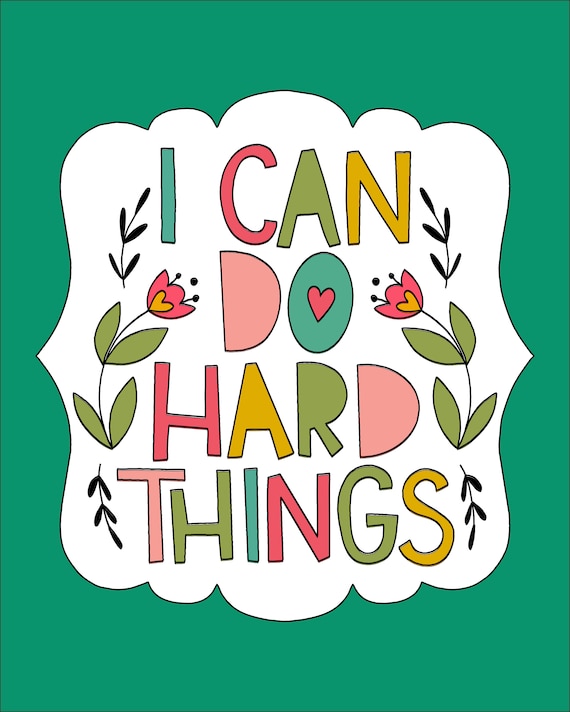Focus is one of those things that can be a hurdle for some children. And it is never more apparent than during the school year. After a blissful summer of freedom and playtime our children are expected to adjust, quite rapidly, to hours of focus. But focus, like many things, can be planted. And if given the right amount of attention and direction it can blossom and continue to grow into a character strength. So this blog is about planting the seeds of focus, no matter your child's age, so we can all have a successful and more productive school year.

Seeds to Plant During the Kinder and Elementary Years
I am expected to work
No matter a child's age everyone can contribute in some way. So instill in your child a sense of work ethic. Give them small tasks with straight forward and achievable outcomes. Then show them how to have fun with it. Have a dance party while sweeping! Get dusted in flour while preparing dinner. Who can be the most creative in getting the job done quick. Does attaching sponges to your feet and skating across the floor work? They won't really be doing the work in the beginning, and they might be more hindrance than help, but you are teaching them to find joy in the mundane tasks of day to day life.

Getting work done feels good
The next step is to focus on the sense of achievement we have after a job well done. We don't want our child to grow learning work is bad and play is good. That attitude only sets them up for failure in the long run. We all have to do work and good things come of it. So focus on cultivating a sense of pride in their work. Teach them that avoiding work is more trouble than it's worth. After all, focused adults view their work as something contributing to their internal sense of meaning and accomplishment. So teach your child to stop viewing their work as something "extra" they must do. It will help them succeed now and prevent heartache over homework and other deadlines later.
Persistence is key
We don't always crush every task we've been given. And that can be disheartening no matter our age. So teach your child to focus on the things that went well. Praise their efforts and the traits they used to get this far. Emphasize the value of persistence. By shifting the focus to this, rather than crushing success, we are helping our children grow to be resilient and to push through, and focus on the task at hand even when things don't go heir way.
Starting is the hardest part
This truly is the most difficult step because it requires focus and some organized thought. So teach your child how to be a better starter. Instead of making them do their homework and keeping tabs on every single assignment and due date for them let your kiddo get some reps. Asking your kiddo "How are you going to get this done?" is more beneficial than telling them how and what to do. For your visual child, make a weekly written list that blocks out their free time and non-negotiable events. Then let them choose where and when they want to do their homework. This helps them develop planning, time management, and gives them a personal stake in when and how things get done. A child with this sense of "ownership" over their schedule is more likely to comply and focus when the time comes.
Seeds to Plant During the Middle School Years and Beyond
I can problem solve
We do have the answers. But problem solving is an important skill set that builds focus. So get your child involved. Help them figure out organization and scheduling skills now that will help them independently succeed in high school and beyond. Ask them how they plan on getting their work done today? Ask them how they can be better prepared for tomorrow? Ask them how they can be more organized and keep from losing things? Your child's answer gives you insight into what went wrong and how their brain works. Sure you could solve these problems yourself, but that doesn't help your child in the long run. So take the time to ask questions, listen to their ideas, and then refine and support them as much as you reasonably can. This can be hard because we know what works for us. But it's important to recognize that our way of doing things might not work for them.

I know my strengths and weaknesses
We all have individual strengths and we all have weaknesses. Taking the time to identify them early on and building the skills to cope with them now is a huge advantage in life and success. So compare times of focus to times of not. Draw your child's attention to the outcomes of each situation using real life day to day examples. And do this with as many traits as you can. Focus matters in success. On the field, in the classroom, and beyond. So praise those strengths. Take the time to recognize them and your personal pitfalls. Then take the time to help your child problem solve ways to counter act those pesky weaknesses while we work to make them stronger.
I am capable of managing outcomes
The pressure is more once our kid's enter middle school. And so it can be harder for our child to move on when things don't go well. Their tasks, hopes, and expectations are bigger than they were in elementary school. But who really remembers their grades from middle school? Did they really matter? Does Suzy being the lead in the school play ruin your chances of being a Theater Thespian in high school? Not one bit. So use the middle school years to talk about moving on and managing expectations. Try to take the emotional part of failure and instead focus on what they can do better in the future.
I am happiest when I have some sort of balance
We spoke previously on ownership and how it plays a big role in how invested our child is in a task. As our child learns and grows more and more expectations and tasks are put on their plate. This is the natural progression of things. So give them the tools to plan, set some non-negotiables (like eating and sleeping) and let them try. Don't get too involved. There are natural consequences when we don't plan to do the work and when we don't follow through. And those consequences usually steal from our recreational time. Let those lessons shine while the stakes are small. Teach your child to balance and celebrate the process of work and play. Teach them that electronics are great, but not all recreational free time should involve screens. Achieving a semblance of that balance now, while the hormones are still sort of in check, really pays off in the high school and college years to come.
No matter where you are in your families journey we can all benefit from a little more focus. So use this little list of tools as a check on your progress and don't be afraid to go back and remediate some of these steps if you've been struggling with them. As you all grow your focus and your ability to work you will find that homework battles become less frequent, getting ready for practice is no longer a chore, and that overall more is being achieved with less emotional back lash. You've got this Warrior parents. It may be a different sort of school year, but we've already weathered much more since the start of the year.
#RaiseAWarrior

No comments:
Post a Comment